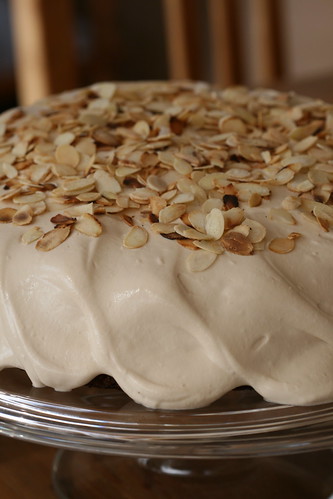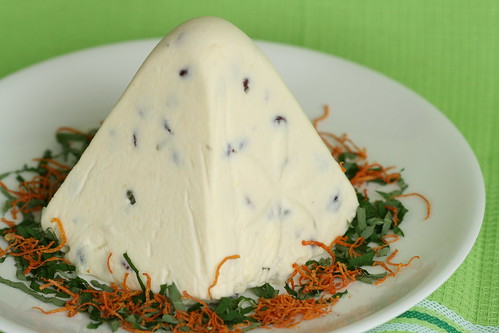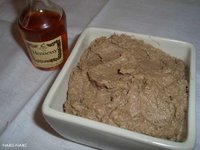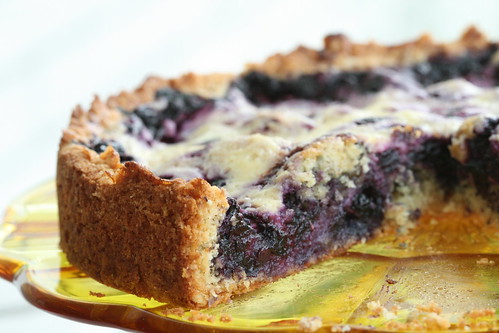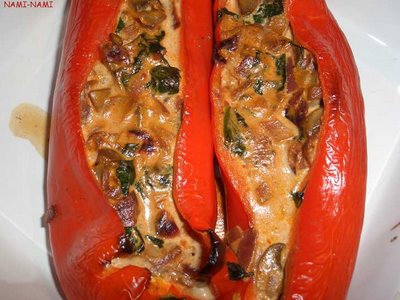I celebrated
Easter last weekend with paskha, the typical festive dessert back home in Estonia. This weekend I helped a Greek friend in need to celebrate Orthodox Easter. On this occasion the Greeks eat a special sweet bread -
tsoureki. I baked a rather nice one in Edinburgh last year, devoured in minutes by a bunch of Greek students, and consequently got a mail order request to make one again for this Easter. The large and beautifully aromatic tsoureki was flown to an undisclosed destination in mainland Europe. Thank you, C.D,. for acting as a courier on such a short notice!
The recipe is based on two
Paul Hollywood's recipes - one from his book
100 Great Breads and another from
UKTV Food. I keep having problems with Hollywood's recipes and I'm not sure they have been double-checked properly by the pastry chef himself. His recipe for
mint & halloumi bread seemed also a bit awkward, though the bread I ended up baking was delicious. His two tsoureki recipes are even more confusing. The only constant seems to be the amount of flour (500 grams) - the amount and list of other ingredients vary rather wildly. Hollywood cannot really decide whether he wants 2 eggs in his tsoureki or none, whether to use 30 grams of dried yeast (!!!) or 15 grams of fresh (it should be other way around, surely!?). And adding 15 grams of salt to 500 grams of flour seems also a wee bit too generous. I want my guests to come back for more, so I've tweaked the recipes accordingly.
For example, I've omitted the raisins altogether, as according to my Greek sources there should be none in a tsoureki (raisins may be a Cypriot twist). I've reduced the amount of salt and butter. I didn't use the
red eggs that are traditionally used to decorate tsoureki - although this is strictly necessary only if you eat the tsoureki on the
Easter Sunday. This time I also managed to get hold of mastic and mechlebe - two new spices in my kitchen. Although I don't know how to describe them, they did give a very pleasant and unusual flavour to the end product. You should be able to find them from health food shops or shops specialising in Greek and Middle Eastern produce.
But definitely one beautiful sweet bread.
Greek Easter bread TSOUREKI(
Kreeka lihavõttesai "tsoureki")
Makes one large plaited loaf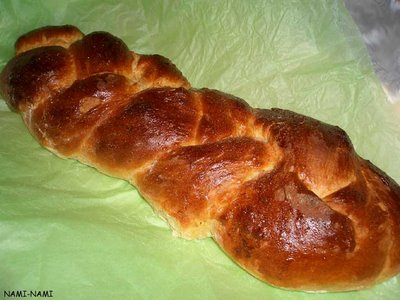
500 grams strong white flour
75 grams golden caster sugar
50 grams softened butter
1 large orange, zested
0.5 tsp salt
a pinch of mechlebe (sour cherry pits - about 10), pounded finely
a pinch of gum mastic (ca 2 pieces), pounded finely
a generous pinch of ground cinnamon
1 egg
25 grams fresh yeast
150 ml lukewarm water
150 ml lukewarm milk
For brushing:
1 egg, beaten
Mix the flour, sugar, salt, orange zest, cinnamon, gum mastic and mechlepi and soft butter in a large bowl. Crumble the butter into the dry ingredients.
Mix the fresh yeast with a small amount of lukewarm water until combined, add to the dough.
Add the egg, lukewarm milk and water and mix everything together with your hands.
Dip the dough onto a floured surface and knead for 5 minutes, until the dough doesn't stick to your hands anymore (you may have to add some more flour).
Put the kneaded dough back into the bowl, sprinkle with some flour and cover with a clean kitchen towel.
Leave to rise for one hour in a warm place, until the dough has doubled in size.
[Or, if you insist, leave to rise at room temperature, go for a cocktail with friends at Dragonfly @ Grassmarket and then for a meal at Hanam's, a new Kurdish & Middle Eastern restaurant @ Tollcross. Return 4 hours later and continue].
Knock the dough down and dip onto a slightly floured surface again and divide into three. Roll each dough piece into a long strip and plait the strips together. Lift onto a large baking sheet and leave to rise for an hour, until doubled in size again.
Brush with beaten egg and bake in the middle of 200˚C oven for 25-30 minutes, until tsoureki is nice and golden brown.



